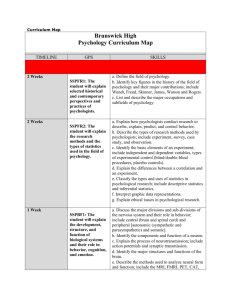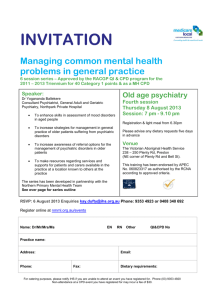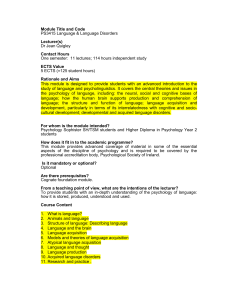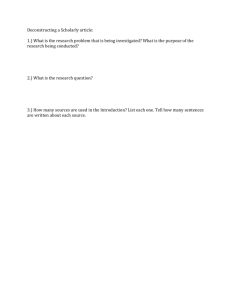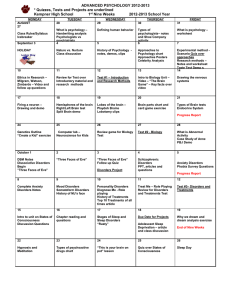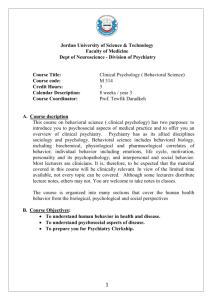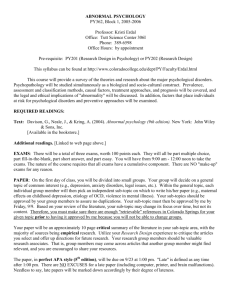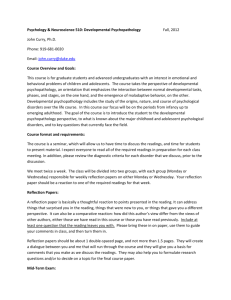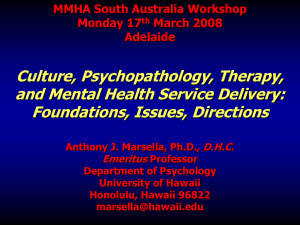COURSE 303 – HUMAN BEHAVIORAL SCIENCE
advertisement
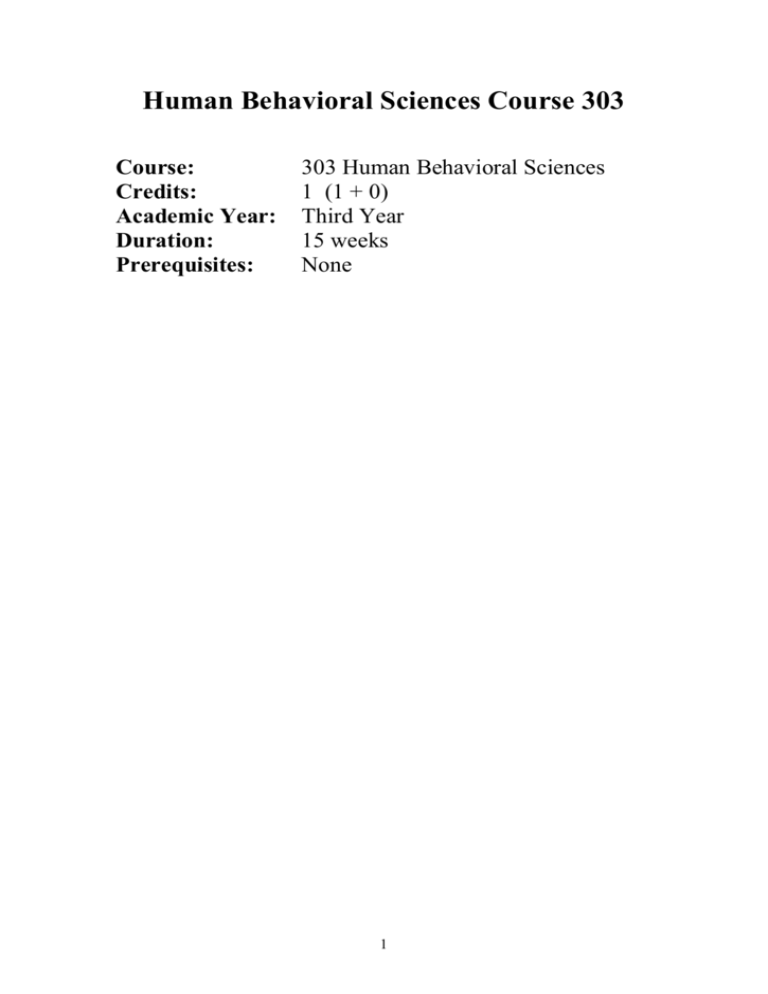
Human Behavioral Sciences Course 303 Course: Credits: Academic Year: Duration: Prerequisites: 303 Human Behavioral Sciences 1 (1 + 0) Third Year 15 weeks None 1 HUMAN BEHAVIORAL SCIENCES - COURSE 303 Objectives: a. To introduce the student to the basic scientific information in behavioral sciences basic to clinical psychiatry especially psychology and sociology. b. To emphasize positive and therapeutic human psychological interaction between the student and his patients, colleagues and seniors. c. To prepare the student with basic knowledge and terminology for courses of psychiatry, child development, neuro-psychological assessment and other related subjects in the college curriculum. Course Format: Consist of fourteen lectures one hour each. Practical demonstrations are encouraged within the lectures as appropriate. Language of Teaching: To be taught in English. Teaching Staff: To be taught by the Department Staff and others. Lectures Contents: 1 – Introduction: Objectives of the Course. Teachers. Examinations. Behavioral Sciences basic to clinical psychiatry: psychology, sociology. 2 – Learning, Language, Thinking: Definition and theories. Links with associated clinical disorders. 3 – Motivations, Emotions, Stress: Definition and theories. Links with associated clinical disorders. 2 4 – Biopsychosocial Medicine: Body mind interaction. Psychosomatic Theories. Links with associated clinical disorders. 5 – Memory, Perception, Consciousness, Sleep: Definition and theories. Links with associated clinical disorders. 6 – Outline of Child Development: Theories of Development. Cognition Development. Emotion Development. Social Development. 7 – Personality: Theories. Links with associated clinical disorders. 8 – Psychological Testing I: Assessment of personality. MMPI and EPI. 9 – Intelligence. Definition and theories. Links with associated clinical disorders. 10 – Psychological Testing II: Assessment of intelligence. WISC and Binnee. 11 – Models of the Mind: Theories of the mind. Integrative models. Links with clinical disorders. 12 – Psychiatric Terminology: English = Arabic. 3 13 – Psychopathology: Descriptive phenomenology. Links with associated clinical disorders. 14 – Communication Skills: Interviewing Skills. Doctor-patient relationship, nature and boundaries. Method of Assessment: 1- Continuous Assessment Examination consist of MCQs within the College regulations of examinations, thirty in total, twenty of truefalse type and ten of single best answer, and this forms 40 marks. 2- Final examination consists of MCQs within the College regulations of examinations which will be applied clinical type and this forms 60 marks. References: 1. The Scientific Principles of Psychopathology. P. McGuffin, M.F. shanks, R.J. Hodgson Academic Press Inc. (London) Ltd. 2. An Outline of Psychology (as applied to Medicine) John Weinman John Wright & Sons Ltd., 3. Medical Psychology (for undergraduate Medical Students) Prof. Afaf Hamed Khalil El Shazly Printing House 4. For clinical subjects please refer to recommended textbooks of Psychiatry Course 462. Contacts: - Course Organizer: Tel: 467-1719 Department of Psychiatry: Tel: 467-1717 / 467-2360 4
